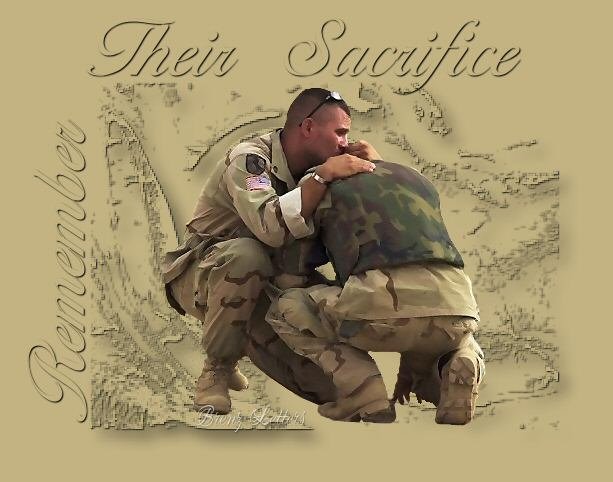Are You Prepared?
Rod Proctor
NewsMax.com
Monday, July 16, 2007
Leading terrorism experts agree that Americans face a major al-Qaida threat this summer, although several also slam Homeland Secretary Michael Chertoff for basing his recent threat-level analysis on his "gut feeling."
"What a jerk," says former FBI terror consultant Paul L. Williams of Homeland Security, regarding Secretary Michael Chertoff's intuition about terror attacks this summer.
"He better have more in the pit of his stomach, so we can react according to reason and not feeling," Williams says. "The American people right now don't need the feeling of anybody. They need the sound judgment of officials."
[Editor's Note: Homeland security experts agree: Every home should have an emergency radio.]
Although Williams disagrees with how Chertoff articulated his concerns to the media, he agrees that the threat from al-Qaida in the months ahead will be very high. His nightmare scenario: An al-Qaida dirty-bomb attack carried out against multiple U.S. cities simultaneously.
The Center for Strategic and International Studies' Arnaud de Borchgrave also objects to Chertoff's choice of words. "I don't think you can assess the current terrorist threat by inflicting a case of gastric distress on the country," he tells NewsMax. "This is not a very serious way of handling the problem of terrorism."
Yet de Borchgrave cautions that Americans are getting too complacent about terrorism, adding,
"That's precisely when al-Qaida will strike."
Here's what experts on terrorism tell NewsMax about Chertoff and the likelihood of a summer strike:
Arnaud de Borchgrave
Senior adviser, Center for Strategic and International Studies; editor at large, United Press International, and The Washington Times newspaper. Author of Open Source Information: The Missing Dimension of Intelligence, and co-author of Wild Atom: Nuclear Terrorism.
Prediction
"As for the next major terror attack, it's just a matter of time. My assumption is it will be a weapon of mass destruction. If al-Qaida had used a small 10-kiloton nuclear weapon instead of two aircraft on 9/11, you would have had 1 million people killed."
How Dangerous Is It?
"No one can afford to relax their vigilance no matter what jobs they've got in the public security sector. I was on a flight recently where I didn't have the feeling an air marshal was aboard and the cockpit door was open. People forget what they should be on a constant lookout for. Six years since 9/11, people become complacent. They don't think anything will happen. That's precisely when al-Qaida will strike."
Dr. Marvin Cetron
Intelligence, technology and forecasting consultant; president, Forecasting International. Author of American Renaissance: Our Lives at the Turn of the 21st Century.
Prediction
"The people who started al-Qaida were engineers and doctors. They believe in technology. They made sure their attacks would be successful technologically.
"They are familiar with biomedical research. If they wanted to do a bioweapons attack they would be in a perfect position to do that.
"If they screwed up our food supply, say in Nebraska, we would be in big trouble. These people would have access to radioactive materials."
How Dangerous Is It?
"[Chertoff] had a 'gut feeling' because he saw the intelligence report that said we were worse off - and we are worse off. The data and chatter we're hearing is as high, if not higher, than we had before 9/11. . . Data leads us to believe al-Qaida is getting stronger and will be back here whether we get out of Iraq or not. Summer is easier [for terrorists]. Students, who are generally the extremists, are not in school and can travel more easily. For the next month and a half, we ought to increase the threat level to red."
Steven Emerson
Executive director, The Investigative Project on Terrorism. Author of American Jihad: The Terrorists Living Among Us and Jihad Incorporated: A Guide to Militant Islam in the U.S.
Prediction
"There are plenty of infrastructure possibilities (for attack). The list is endless - an exercise in futility."
"We've plugged some of (the border holes), but not all of them. The borders with Canada and Mexico could be tighter."
How Dangerous Is It?
In general, I think [Chertoff's remarks] were helpful. They drew attention to the fact that al-Qaida is mobilizing. There's always the risk of crying wolf, but again, in general he's trying to raise the alarm and he has good reason to."
Walid Phares
Director, Future Terrorism Project of the Foundation for the Defense of Democracies; visiting fellow, European Foundation for Democracy. Author of The War of Ideas: Jihadism Against Democracy.
Prediction
"If attacks are prepared they may come from either or both types of cells - those that have formed on their own inside the country and those receiving instructions from overseas. There are multiple scenarios for such attacks. It depends on what the cells have acquired inside the country in terms of targets, manpower, infiltration, types of weapons and material."
How Dangerous Is It?
"I project that the Jihadists, not only al-Qaida but also those connected to regimes, think that the next few months are crucial as they precede the presidential campaign year of 2008.
"They want to impact the choices made by the voters, but early in the process. They also want to impact the Iraq ground report coming at the end of the summer."
Paul R. Pillar
Visiting professor on foreign policy, terrorism, and the Middle East, Georgetown University.
Prediction
"Al-Qaida proper - the group that did 9/11 and that is commanded by bin Laden and Zawahiri - probably is still weaker today than it was in September 2001, despite recent recouping of some of its losses in South Asia.
"The broader Islamist terrorist movement, however has become larger and more threatening over the past five years."
How Dangerous Is It?
"I believe [Secretary Chertoff] is correct in gauging the chance of such an attack as significant. Al-Qaida's proven ability to use conventional means to inflict heavy casualties suggests that such means will continue to be more likely than the exotic methods. But the latter clearly have an appeal to terrorists as well, if for no other reason than that we focus so much attention on such means and are frightened of them."
Paul L. Williams
Journalist, author and former terrorism consultant to the FBI. Author of The Al Qaeda Connection: International Terrorism, Organized Crime and The Coming Apocalypse and Dunces of Doomsday: 10 Blunders That Gave Rise to Radical Islam, Terrorist Regimes and the Threat of an American Hiroshima.
Prediction
"When our troops were combing caves in Kandahar during Operation Enduring Freedom, in those caves they found canisters left behind with Uranium 238. Worth millions and millions of dollars. It's not weapons grade, but it's perfect for a radiological bomb. Set one off in New York and you would have hell to pay. Some of these substances, like cesium, when it hits a building, that material cannot be scraped off. It cannot be washed off. The building would have to be torn down and taken to a dedicated landfill. Just think what that would do to midtown Manhattan."
How Dangerous Is It?
"I believe the reason there have been no attacks here [since 9/11] is because [bin Laden] is planning to conduct an attack on seven to 10 cities simultaneously. . . They're very patient."
© NewsMax 2007. All rights reserved. Sphere: Related Content











































|